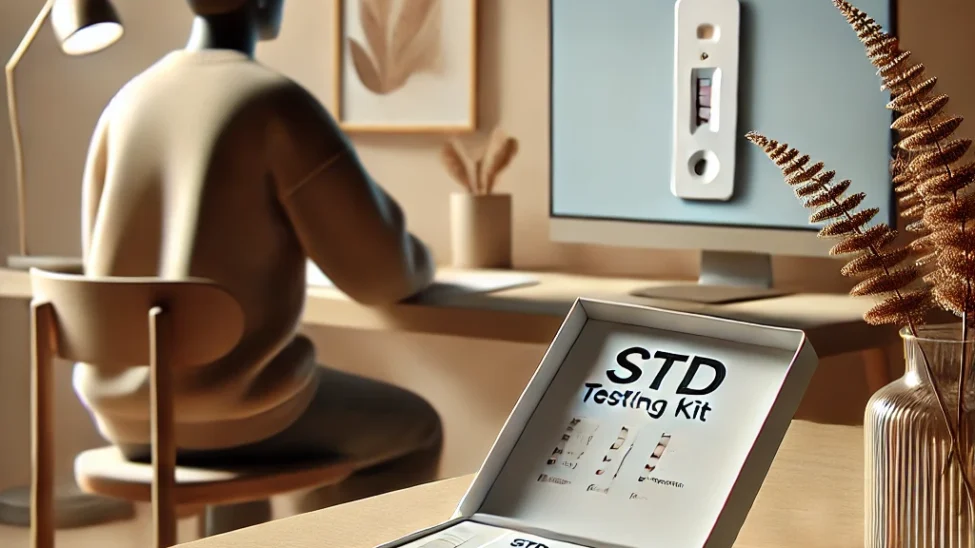
Where to Get STD Testing? A Complete Guide to Safe & Confidential Testing
Sexually transmitted diseases (STDs) are common, and getting tested is essential for maintaining your health and the well-being of your partners. Whether you have symptoms or just want peace of mind, knowing where to get tested is crucial. This guide will help you find reliable and confidential STD testing options near you.
Why Is STD Testing Important?
Regular STD testing helps detect infections early, allowing for timely treatment and reducing the risk of complications. Many STDs show no symptoms initially, making testing the only way to confirm your status. Testing also helps prevent the spread of infections and ensures that you and your partners stay healthy.
Where Can You Get Tested for STDs?
There are several places where you can get tested for STDs, each offering different levels of privacy, cost, and accessibility. Here are the best options:
1. Local Health Clinics & Public Health Departments
Many public health clinics offer free or low-cost STD testing. These clinics are often funded by the government or nonprofit organizations, making them accessible to everyone, regardless of income level.
Pros:
- Affordable or free services
- Confidential testing
- Professional medical staff
Cons:
- Longer wait times
- Limited appointment availability
2. Planned Parenthood Clinics
Planned Parenthood is a trusted provider of sexual health services, including STD testing and treatment. They offer comprehensive care and counseling for those who need it.
Pros:
- Expert sexual health professionals
- Affordable options based on income
- Additional services like contraception and counseling
Cons:
- Not available in all locations
- Costs may vary depending on insurance coverage
3. Private Clinics & Urgent Care Centers
Private medical clinics and urgent care centers provide STD testing with quick results and flexible appointment options. These locations are ideal for those seeking faster service.
Pros:
- Faster test results
- Convenient locations
- Can combine with other medical services
Cons:
- Higher costs compared to public clinics
- Some locations may not accept insurance
4. Pharmacies Offering STD Testing
Some major pharmacies, such as CVS and Walgreens, offer in-store STD testing. These tests are conducted in partnership with healthcare providers and may include in-person or at-home options.
Pros:
- Easy access to testing
- Some locations offer walk-in testing
- Convenient for those without a primary care doctor
Cons:
- Limited availability depending on location
- May not test for all STDs
5. Online & At-Home STD Testing Kits
At-home STD testing has gained popularity due to its privacy and convenience. Companies like Everlywell, LetsGetChecked, and myLAB Box offer test kits that you can use in the comfort of your home.
Pros:
- 100% private and discreet
- No need to visit a clinic
- Easy-to-follow instructions
Cons:
- Costs may be higher than in-person testing
- Results take longer than urgent care options
- Some tests require follow-up with a doctor
6. Your Primary Care Physician
If you have a trusted doctor, they can provide STD testing during a routine check-up or a special appointment. They can also offer personalized advice and treatment plans.
Pros:
- Comprehensive medical guidance
- Covered by many insurance plans
- Option to discuss concerns with a trusted provider
Cons:
- May require scheduling an appointment in advance
- Less anonymous compared to walk-in clinics
How Much Does STD Testing Cost?
The cost of STD testing varies based on where you go, what tests you need, and whether you have health insurance. Here’s a general cost breakdown:
- Free – Some public health clinics and nonprofit organizations
- $25 – $100 – Planned Parenthood and low-cost clinics (cost varies by income)
- $50 – $300 – Private clinics, urgent care centers, and pharmacies
- $75 – $200 – At-home STD test kits
Most insurance plans cover STD testing, but it’s best to check with your provider.
What to Expect During an STD Test
STD testing methods depend on the type of infection being tested for. The most common methods include:
- Urine Test – Used for chlamydia and gonorrhea
- Blood Test – Detects HIV, syphilis, and herpes
- Swab Test – Used for oral, genital, or anal infections
- Physical Exam – Some STDs, like genital warts, may be diagnosed visually
Most results come back within a few days to a week, though rapid HIV tests can deliver results in minutes.
Confidentiality & Privacy Concerns
Most STD testing locations follow strict confidentiality policies. If you visit a doctor or clinic, your results are protected under medical privacy laws (HIPAA in the U.S.). Many at-home tests also provide anonymous testing options.
When Should You Get Tested?
You should get tested for STDs if:
- You have unprotected sex
- You experience symptoms like burning, itching, or unusual discharge
- You have a new sexual partner
- Your partner has tested positive for an STD
- You’re pregnant or planning to become pregnant
Final Thoughts
STD testing is a vital part of maintaining sexual health. With multiple options available—public clinics, private providers, at-home kits, and more—you can find a testing solution that suits your needs. The key is to get tested regularly, protect yourself, and stay informed about your sexual health.
Take Charge of Your Health Today!
If you’re unsure where to start, look up local clinics or order an at-home test kit today. Prioritizing your health ensures a safer future for you and your partners.





